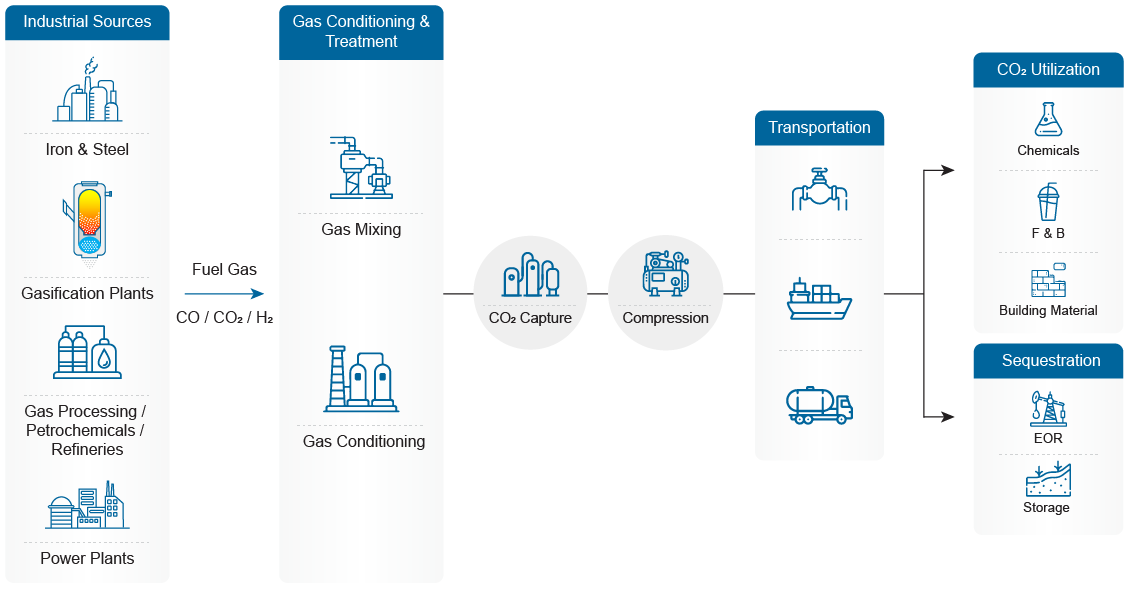Industrial Carbon
Capture
Capture technologies, transportation, sequestration, CO2 to products and EOR
The continuous and affordable availability of dispatchable baseload power, steel, plastics, fertilizers, cement and concrete are critical to ensure energy, material & food security across the world. However, these sectors are fossil fuel dependent and account for 60% or nearly 24 Gtpa of CO2 emissions worldwide.
These sectors are very difficult to decarbonize given the role of fossil fuels both as a source of fuel and in the production process itself. Even with the rapid build-out of renewable capacities, fossil fuel-based power will be critical for ensuring global energy security for the next few decades. Carbon Capture Utilization & Storage (CCUS) provides the only scalable pathway for achieving the decarbonization of these important sectors.
Commercially proven and established CO2 capture technologies integrated with upstream feedstock blending, capture point optimization & gas conditioning and downstream utilization, storage and EOR can be used to build scalable, sustainable and economically viable pathways to net-zero. Both the IPCC and the IEA also agree that the journey to net zero is impossible without scaling CCUS to the “Gigatonne scale”.
Dastur Energy is designing industrial carbon capture, utilization and storage systems for various industrial installations in North America, the Middle East and Asia. These projects involve combining and selecting different types of technology and CO2 carbon capture points with suitable gas conditioning and carbon disposition schemes to achieve optimal techno-economics and competitive cost carbon capture. Dastur Energy is also advising Governments and institutions across the world on the technology and policy gaps to be addressed to scale CCUS to the desired Gigatonne scale.
Dastur’s multi-faceted approach combines a deep understanding of technology, markets & business models and our IP:
-
Determining the most appropriate CO2 source & sink and the right CO2 capture volume based on gas stream characteristics, CO2 concentration, partial pressure & flow rate, CO2 utilization & disposition opportunities and system integration of individual components for optimal techno-economics
-
Independent and unbiased techno-economic comparison and assessment of various potential technology options and technology providers.
-
Helping clients make the optimal technology choices across the CCUS value chain based on analysis of capture cost plot requirements, CO2 volume requirements, gas characteristics, utility availability, costs and operating references.
-
Optimizing the carbon capture project design and techno-economics through suitable gas conditioning & treatment strategy
-
Potential to convert CO2 to downstream low-carbon products like methanol, along with optimal green & blue hydrogen sourcing strategy
-
Design flexible and scalable transportation (pipelines, ships, or trucks) & disposition infrastructure based on CO2 volumes, end-use, distance, switching opportunities and market opportunity.
Technology Pillars
-
Industrial Carbon
Capture -

Carbon Dioxide to Value -
Hydrogen -

Green Molecules -
Waste Gas Utilization -
Gasification

